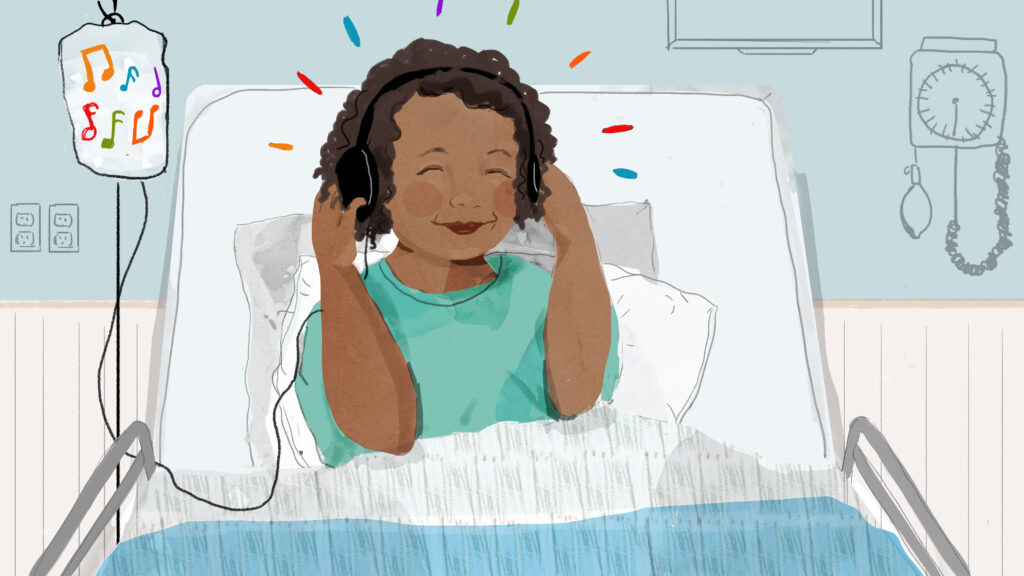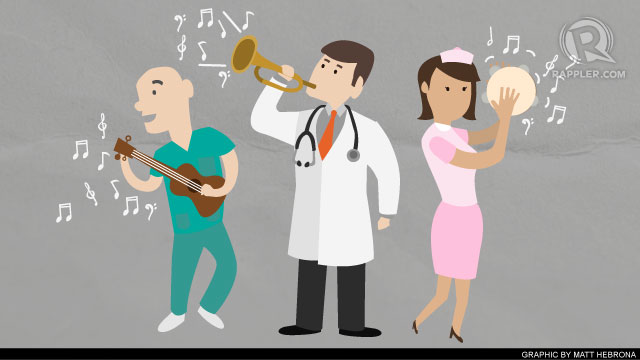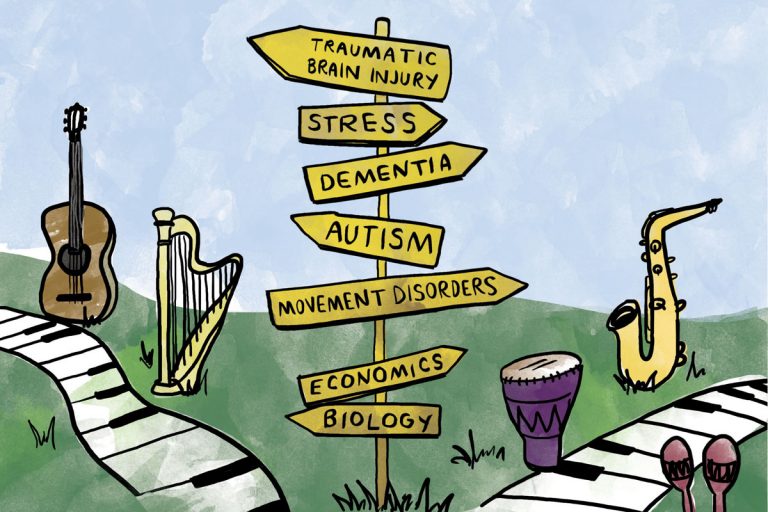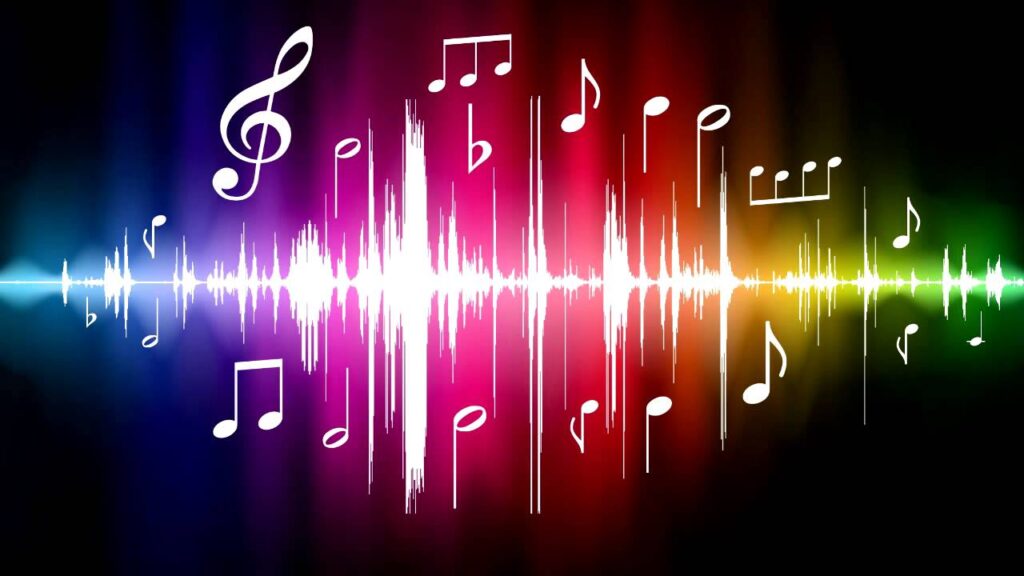“Though researchers are still fuzzy on how sound therapy works, there’s plenty of scientific proof that it can be effective for everything from reducing stress to boosting your brainpower. Many studies, for example, have shown that music can reduce pain and ease anxiety during surgical procedures.

German researchers found that patients having gastroscopies, during which a doctor runs a snakelike scope down the patient’s throat to look at the stomach had lower levels of stress hormones in their bloodstreams when they listened to the music of their choice during the procedures. Doctors at the Bethesda Naval Medical Center in Maryland found that men who listened to music during sigmoidoscopies reported feeling more relaxed during the sometimes uncomfortable examination of the colon, which requires a tube to be passed through the anus.

Dentists have long known the value of sound. Back in 1960, a Boston dentist, Wallace Gardner, D.M.D., wrote that music completely relieved pain in about 65 percent of the 1,000 patients he tested, while another 25 percent had enough reduced pain that they didn’t need anesthesia. Some researchers speculate that distraction plays a big role in pain relief, since the music takes the patient’s mind off the procedure. Others point to endorphins, claiming that music’s ability to make the body release these natural painkillers is the key to easing discomfort.
Music may make you smarter, too-at least temporarily. A study from the University of California, Irvine, found that college students who listened to Mozart for 10 minutes scored higher on intelligence tests than they did after listening to relaxation tapes or sitting in silence for the same amount of time. The 36 students in the study scored an average of eight to nine points higher on tests taken immediately after listening to the music. Unfortunately, the effect lasted only 10 to 15 minutes, after which the scores returned to normal.
Sound therapy could also help people improve the quality of their workouts. A study from Louisiana State University in Shreveport concluded that listening to slow easy-listening music lowered the heart rates and allowed for longer training sessions in a group of 24 young adults. Listening to hard-driving rock music had the opposite effect; heart rates increased and workouts were shorter when the subjects tuned in to rock ‘n’ roll. The study’s author, B. Don Franks, Ph.D., professor in the university’s Department of Kinesiology, says the soft music may make the exercise seem less difficult and allow people to work out longer.
Many doctors use music with patients they have trouble communicating with, such as autistic children, older people with Alzheimer’s disease and victims of head trauma. Studies report that music can help make contact with these people when traditional therapy and verbal communication fail. For example: A six-month study from Indiana University of Pennsylvania looked at 60 elderly patients with Alzheimer’s disease and found that those who listened to big band music during their daily recreation periods were more alert and happier and could recall more from the past than those who didn’t listen to music.

A new branch of sound therapy, called music thanatology, seeks to ease the emotional and physical suffering of terminally ill patients. The creator of music thanatology, Therese Schroeder-Sheker, uses harp and vocal music similar to that which medieval monks used to comfort people who were dying.”
~ New Choices in Natural Healing

